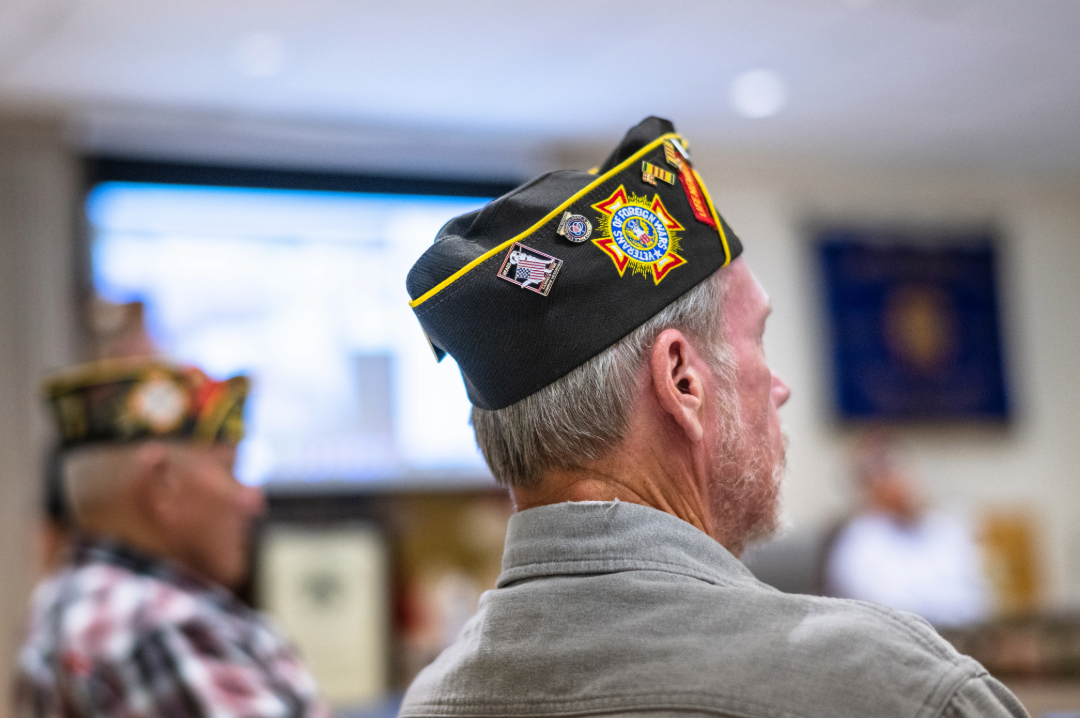Commemorating 37 Years of the Department of Veterans Affairs Act of 1988
Updated on: October 24, 2025
Published on: October 23, 2025
October 25, 2025, marks the 37th anniversary of the Department of Veterans Affairs Act of 1988. This pivotal legislation elevated the Veterans Administration to a Cabinet-level department, reinforcing the nation’s commitment to those who served our country.
Signed into law by President Ronald Reagan in 1988 and implemented during President George H. W. Bush’s administration, the Act acknowledged the growing and complex needs of veterans—especially those from World War II, Korea, and Vietnam. The elevation brought increased oversight, funding, and policy influence, ensuring veterans’ issues received the highest level of attention within the federal government.
Serving Those Who Served: A Conversation with Tim Yaecker, Senior Consultant at PCG
This month, we sat down with Tim Yaecker, a Senior Consultant, to learn more about how PCG partners with state agencies improve outcomes for veterans across the country. From long-term care planning to addressing homelessness and supporting women veterans, PCG’s work is helping shape the future of public sector services for those who served.
Q: Veterans’ needs are evolving. How has PCG helped states adapt their services to meet changing demographics and specialized groups, such as women veterans or veterans experiencing homelessness?
Yaecker: PCG has worked with several states to help them better understand their veteran populations and align services accordingly. In North Carolina and Alabama, we analyzed demographic trends to recommend future services like behavioral health and long-term care. In Massachusetts, we engaged directly with women veterans through surveys, focus groups, and interviews to understand their needs and advise the Commonwealth on how to better serve them. In Missouri, we identified national best practices to help the state support homeless veterans more effectively.
Q: How has PCG helped state veterans’ agencies modernize aging infrastructure and improve service delivery despite limited resources?
Yaecker: While we haven’t always implemented infrastructure updates ourselves, our work has provided critical decision-making support. For example, our demographic analyses in Kentucky, Alabama, and Massachusetts helped those states secure financial and political backing for new long-term care facilities. In Massachusetts, we also developed a staffing model for a new veterans’ home using the “small house” model—an approach that maximizes efficiency while meeting increased staffing needs.
Q: Can you share some measurable outcomes or improvements that resulted from PCG’s work? Is there a project that stands out to you?
Yaecker: Many of our projects focus on assessments and recommendations, so we’re not always involved in implementation. That said, three states—Kentucky, Alabama, and Massachusetts—used our work to successfully apply for federal matching funds to build new veterans’ homes. Massachusetts stands out to me personally. The new veterans’ home in Chelsea was visible from our Boston office at 148 State Street, so we could literally watch the construction progress from our windows!
Q: What lessons have you learned from working across multiple states that will help inform future projects?
Yaecker: One key lesson is that veterans’ needs vary significantly across age ranges, demographics, and even geographic locations—sometimes within the same county. It’s crucial for states to recognize these differences and maintain flexibility in their service delivery. Another takeaway is the importance of coordination. Veterans and service providers often face bureaucratic hurdles, and many nonprofits step in to fill gaps. States can play a vital role in coordinating these efforts and reducing duplication.
The Department of Veterans Affairs Act of 1988 laid the foundation for today’s modern U.S. Department of Veterans Affairs. In 2025, that foundation supports a vast, integrated health care system serving more than 9 million enrolled veterans.
As we commemorate this anniversary, we reaffirm our commitment to those who served. Through strategic planning and on-the-ground assessments, PCG helps states deliver smarter, more compassionate services—ensuring veterans receive the care and support they deserve.
Explore how PCG continues to support veterans nationwide here.
